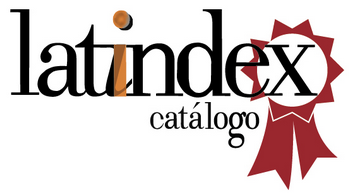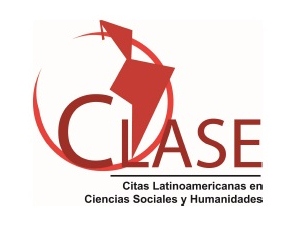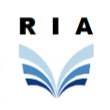Los primeros días de un curso de lógica
Resumen
Recepción: 10 de marzo de 2017 Aceptación: 13 de junio de 2017 En este corto artículo se bosqueja la opinión de un lógico sobre ciertas ideas básicas que deberían explicarse en los primeros días de cualquier curso de lógica. Se aborda la naturaleza y los objetivos de la lógica. Se discute lo que un estudiante puede esperar lograr estudiando lógica y se advierte sobre los problemas y obstáculos que tendrá que vencer o con los cuales tendrá que aprender a vivir. Se introduce una buena cantidad de términos clave que un estudiante encontrará en lógica. Una proposición es o verdadera o falsa per se, no “para esta o aquella persona”.Un argumento es o válido o inválido per se, no “para esta o aquella persona”. Una argumentación es o concluyente o no concluyente, no per se, sino para una persona. Sin embargo, el hecho de que una argumentación dada sea concluyente para una persona determinada depende sin lugar a dudas de las ideas subjetivas de tal persona, pero sólo hasta cierto punto: si una argumentación dada es concluyente para alguien, pero no para otro, el primero sabe algo que el segundo no sabe; y no toda argumentación que alguien en específico considere concluyente para tal persona es en realidad concluyente para tal persona. En el carácter concluyente de una argumentación hay más cosas involucradas que sólo la subjetividad. Se proporcionan lecturas sugeridas en las referencias parentéticas, ligadas con la bibliografía final.Citas
BOURBAKI, N. (1949). Foundations of Mathematics for the Working Mathematician. Journal of Symbolic Logic, 14(1), 1-8.
CORCORAN, J. (1973). “Gaps between logical theory and mathematical practice”. In M. Bunge (ed.). Methodological Unity of Science (pp. 23–50). Dordrecht: Reidel.
CORCORAN, J. (1979). Review of “Hintikka, J. and U. Remes. The Method of Analysis”. Mathematical Reviews, 58, 3202.
CORCORAN, J. (1989a). Argumentations and logic. Argumentation, 3, 17–43.
CORCORAN, J. (1989b). Inseparability of Logic and Ethics. Free Inquiry, Spring, 37–40.
CORCORAN, J. (1995). Semantic Arithmetic: a Preface. Agora, 14, 149–156.
CORCORAN, J. (1996). “Information-theoretic logic”. In C. Martínez et al. (eds.). Truth in Perspective (pp.143–176), Aldershot, UK: Ashgate.
CORCORAN, J. (1999a). Axiomatic method. Cambridge Dictionary of Philosophy. Cambridge: Cambridge University Press.
CORCORAN, J. (1999b). Critical thinking and pedagogical license. Manuscrito, 22, 109–16.
CORCORAN, J. (2005). Counterexamples and proexamples. Bulletin of Symbolic Logic, 11, 460.
CORCORAN, J. (2006a). An Essay on Knowledge and Belief. The International Journal of Decision Ethics, 2(2), 125-144.
CORCORAN, J. (2006b). C. I. Lewis: History and Philosophy of Logic. Transactions of the C. S. Peirce Society. 42, 1–9.
CORCORAN, J. (2007a). “A priori/a posteriori”. In J. Lachs & R. Talisse (eds.). Encyclopedia of American Philosophy. New York: Routledge.
CORCORAN, J. (2007b). “Knowledge and Belief”. In J. Lachs & R. Talisse (eds.). Encyclopedia of American Philosophy. New York: Routledge.
CORCORAN, J. (2009a). Ambiguity: lexical and structural. Bulletin of Symbolic Logic, 15, 235–6.
CORCORAN, J. (2009b). Aristotle’s Demonstrative Logic. History and Philosophy of Logic, 30, 1–20.
CORCORAN, J. (2009c). “Sentence, proposition, judgment, statement, and fact”. In W. Carnielliet al. (eds.) The Many Sides of Logic (pp. 71–103). London, College Publications.
CORCORAN, J. (2010a). Essay-Review of “Striker, G., trans. 2009. Aristotle’s Prior Analytics: Book I. Trans. with Intro. and Comm. Oxford: Oxford University Press. 2005”. Notre Dame Philosophical Reviews.
CORCORAN, J. (2010b). Hidden consequence and hidden independence. Bulletin of Symbolic Logic, 16, 443.
CORCORAN, J. (2010c). Los primeros días de todo curso de Lógica. Ergo. Revista de Filosofía de la Universidad Veracruzana, 25, 31–45. (Spanish translation by Patricia Diaz-Herrera of a previous Version of this paper).
CORCORAN, J. (2015). Teaching independence. Bulletin of Symbolic Logic, 21, 101–102.
CORCORAN, J. (2016). Logic teaching in the 21st century. Quadripartita Ratio, 1(1), 1–34.
CORCORAN, J. (2017). Review of “Paseau, Alexander, ‘Knowledge of mathematics without proof’, British J. Philos. Sci. 66 (2015), no. 4, 775–799”. Mathematical Reviews.
CORCORAN, J., & W. Frank (2013). Cosmic Justice Hypotheses. Bulletin of Symbolic Logic, 19, 253.
CORCORAN, J., & W. Frank. (2015). Assumptions: illative and typographical.Bulletin of Symbolic Logic, 21, 364–5.
CORCORAN, J., W. Frank & M. Maloney (1974). String theory. Journal of Symbolic Logic, 39, 625–637.
CORCORAN, J., & I. S. Hamid (2014). Objectivity-subjectivity distinctions. Bulletin of Symbolic Logic, 20, 248.
CORCORAN, J., & I. S. Hamid (2015). Investigating knowledge and opinion. In A. Buchsbaum & A. Koslow (eds.). The Road to Universal Logic. Vol. I (pp. 95-126). Basel: Springer.
Una vez que un texto es aceptado para su publicación en Quadripartita Ratio, sus autores deben firmar dos documentos de carácter legal: una Licencia de uso y una Declaración de autoría.
Con la Licencia de uso, los autores autorizan la publicación de su obra y la difusión de ésta (integración en bases de datos, difusión en nuestras redes sociales, reediciones posibles, etc.). No obstante, se autoriza la descarga, reproducción y distribución de todos nuestros contenidos publicados, siempre que no se modifique el contenido y se indique su origen (nombre de la revista, volumen, número, páginas y dirección electrónica del documento).
Con la Declaración de autoría, los autores manifiestan que la obra es de su autoría, original e inédita.









